Gambling Addiction Study – 3300 Participants
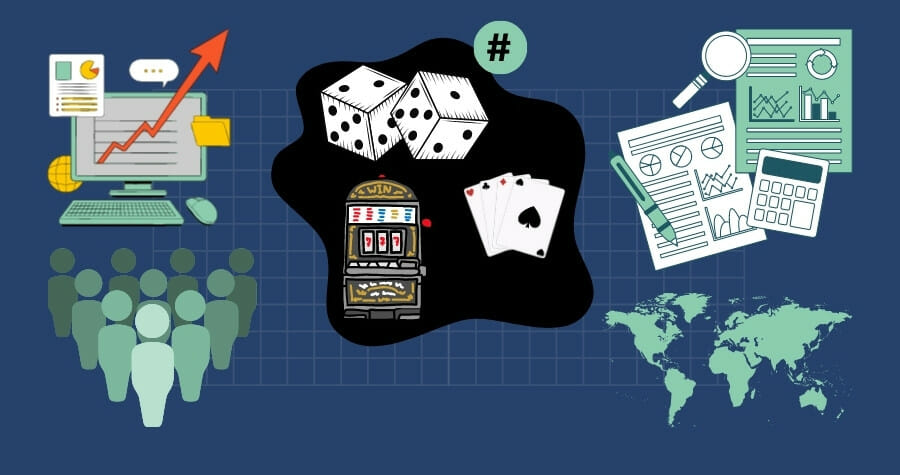
We asked 3,320 gambling addicts on QuitGamble.com about their gambling habits. We collected the data from new members through our sign-up form from June 2023 to January 2024.
The gambling addiction study intends to understand our users better so that we can provide effective support. The data can help our and others’ research on gambling addiction behavior and how to stop gambling.
We have also done a separate gambling addiction study in the United States with 968 respondents and a study comparing male and female gambling addicts.
If you want to know more about the data or want to collaborate. Please contact Anders Bergman via support@quitgamble.com.
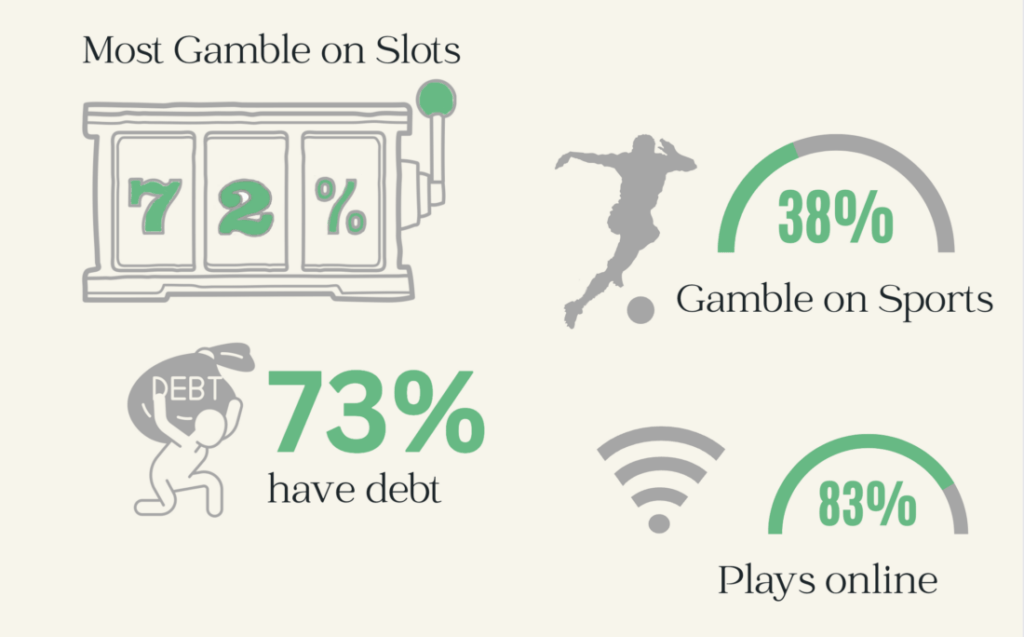
Gambling Addiction Study Findings
- Problem gamblers mainly gamble to win big (36%).
- 18% gamble to escape something.
- 67% of the people seeking help for gambling problems are men.
- 81% gamble online, and 14% gamble only in land-based facilities.
- 73% struggle with debt.
- More female gamblers struggle with debt than male.
- 73% of problem gamblers play slot machines and 80% play casino games.
- 22% of young problem gamblers (aged 18-25) bet on esports.
- More than 38% of gambling addicts bet on sports.
- You can also find separate data for the United States here.
Data discussion
The data is based on responses from people applying for membership on QuitGamble.com. QuitGamble.com is a platform for people seeking help with gambling problems. We have assumed that the respondents have gambling problems.
To ensure data accuracy, the first question was, “How do you plan to use the platform?” We have only included answers from respondents who answered, “I want to stop gambling. ” We got 3,497 responses, including people trying to help someone with gambling problems.
In conducting this global study on gambling addiction, it’s important to note that all participating members consented to share their data anonymously for research purposes through our Terms and Conditions upon signing up on QuitGamble.com. This consent forms the basis of our ethical approach to data collection, ensuring that we respect our members’ privacy while contributing valuable insights into gambling addiction. Our commitment to anonymity and confidentiality is paramount, allowing us to gather and analyze data with the intent of enhancing our understanding and support for gambling addicts worldwide.
Why do gambling addicts gamble?
The most important question we asked our members was: What is the main reason you gamble? (Why do you gamble?) The respondents of the gambling addiction study could only choose one option. Here are the answers.
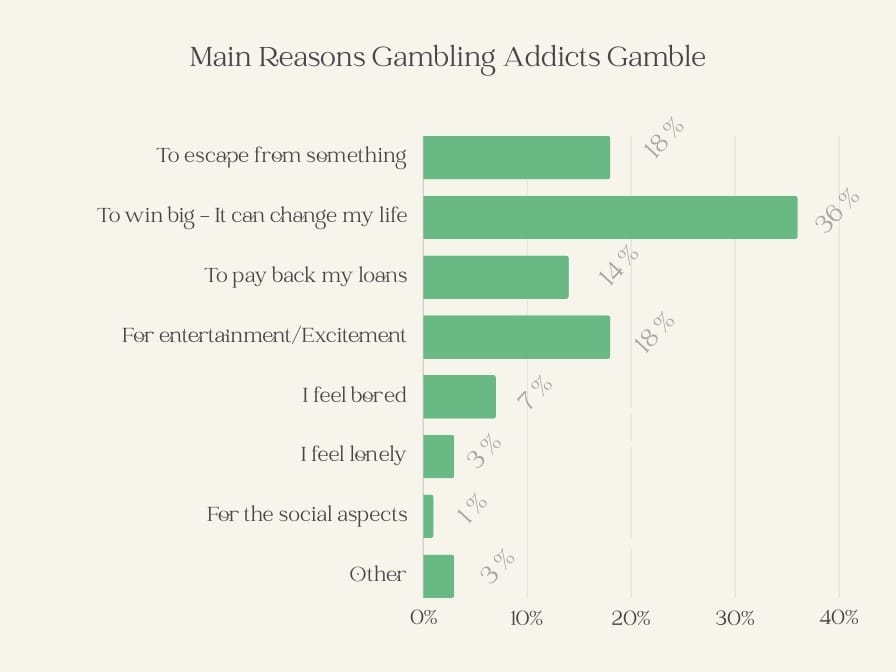
The most frequent reason gambling addicts gamble is to win big, 36%. This answer has also been confirmed in interviews and coaching calls with members. 18% gamble to escape something, and 18% use gamble for entertainment and excitement.
In a study of recreational gamblers in Sweden, 65% of the participants said they are gambling for entertainment. It seems like the why people gamble changes dramatically between recreational gamblers and problem gamblers. Chasing losses is a common symptom of gambling addiction. 14% of the problem gamblers gamble to win money to pay back their loans.
7% gamble when bored, and 3% because they feel lonely. Only 1% gamble because of social aspects.
_______
Comment: Most of our coaching calls start with questions about what happens when you gamble. The intention is to understand why the person gambles without using any judgmental language. Most people say they gamble to win, but after a few minutes of talking, they realize they don’t gamble to win. A crucial finding is that 36% of problem gamblers believe they gamble to win. It means that 36% (at least) have no idea why they actually gamble. This pinpoints the importance of helping gambling addicts understand why they gamble as the first step in helping them become gambling-free. It’s impossible to stop a habit if you don’t understand why you have it. (Similar to hitting a target you can’t see.)
Why do gambling addicts seek help?
To better understand our members’ needs, we asked them what they struggled with most. The respondent could only choose one answer.
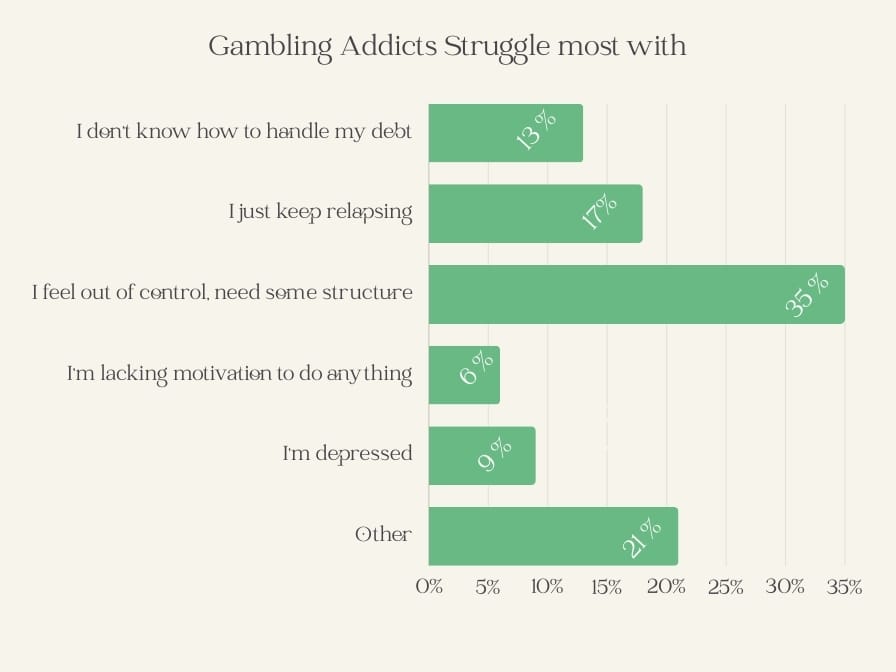
Gambling addicts struggle most with feeling out of control and the need for structure (35%), followed by “I just keep relapsing” (17%) and “I don’t know how to handle my debt (13%).
An American study showed that 69% of problem gamblers have suffered from depression or severe anxiety in the past year. Among our members, 9% say that depression is what they struggle with most. Another group related to depression answered lack of motivation (6%). 21% of the respondents answered “other“, which indicates that we failed to identify some major things our users struggle with.
Comment: Many gambling addicts are desperate because they feel out of control. It means that we need to use a structured approach that is easy to relate to. The easier we can make the introduction, the better.
Seeking help online vs Seeking help from physical treatment
Where do people seek help for gambling addiction? In Sweden, the health authorities reported that over 75% of the problem gamblers getting treatment were men. Among the Swedish users on QuitGamble.com, 69% are men. Worldwide, 67% of the users are men. In the US, only 50% are men.
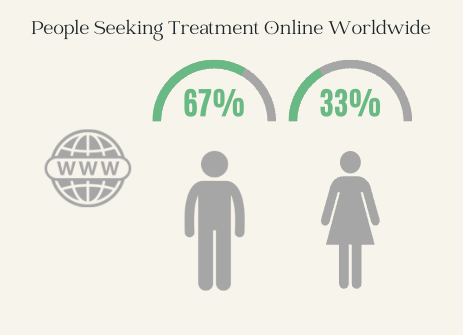
Comment: As a support organization that helps problem gamblers, it’s essential to know how to reach out to people. About 80% of people with gambling problems never seek help. In Gamblers Anonymous, more than 93% are men. Our gambling addiction study indicates that women look for help more online than for traditional gambling support, at least in the United States, where 50% of our users are female.
Where do gambling addicts gamble?
We asked, ” Where do you gamble? ” The options were online, land-based, both, or others. More than 81% of problem gamblers are online, and 14% only gamble in land-based facilities.
In the United States, 59% gamble online and 34% at land-based casinos.
Gambling debt – Do you struggle with debt?
Financial problems are a common consequence of compulsive gambling. On the question, do you struggle with debt? 73% of the problem gamblers struggle with debt. Surprisingly, 78% of the female respondents said yes, while only 71% of the men answered yes.
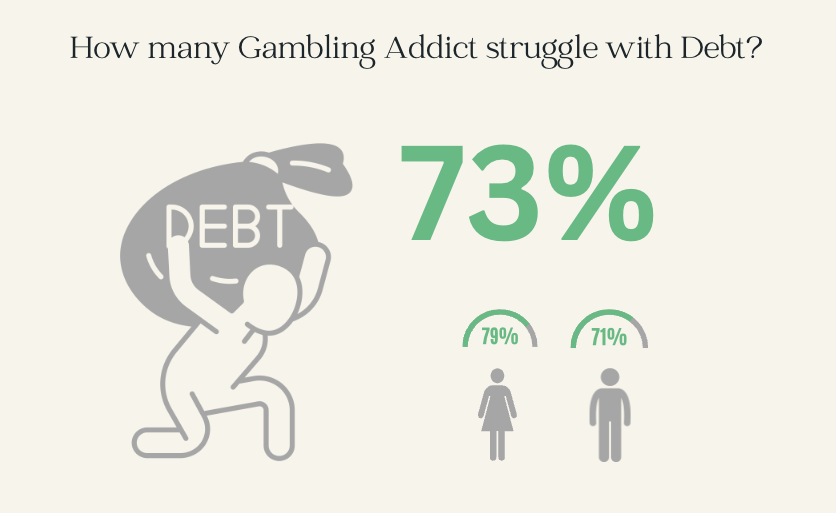
Comment: One study showed that men are more likely to owe money to bookies and gambling companies, while female gamblers owe money to credit card companies.
What do gambling addicts gamble on?
Which games are most addictive? Which types of gambling are most common among problem gamblers? We asked our members, what do you gamble on? Since most gamblers gamble on multiple forms of gambling, they could choose multiple answers.
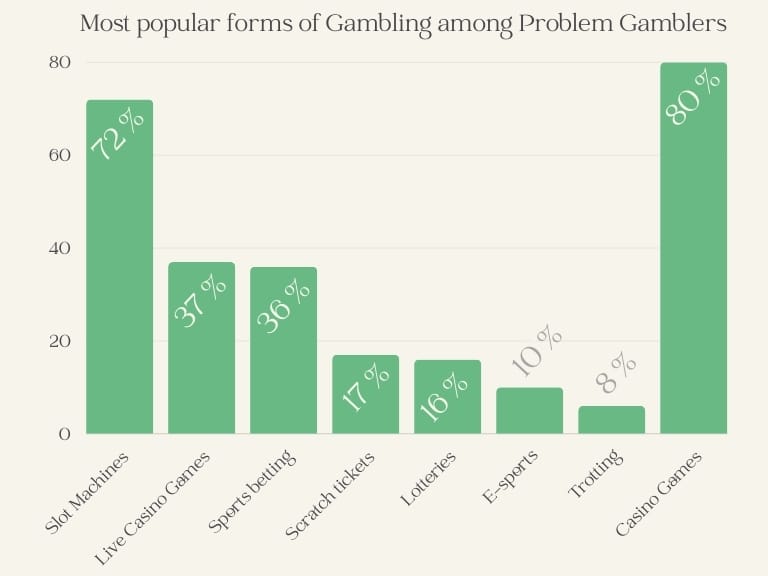
Over 72% of gambling addicts play slot machines. 37% gamble on live casino games, and 80% play either live casino games or slot machines.
Sports betting is expanding rapidly across the United States. So far, “only” 24% of American problem gamblers bet on sports compared to 38% globally.
Other forms of gambling among gambling addicts are scratch tickets (19%), lotteries (18), bingo (13%) and trotting (8%).
Esports betting is growing fast worldwide. Some games people bet on are StarCraft, Dota 2, Fortnite, Counter-Strike, and League of Legends. Today, 12% of our members gamble on esports.
Comment: An indication that that number will grow over the next few years is that 21% of young adults 18-25 gamble on esports already. The market for esports betting in 2024 is projected to reach $4.3B and will continue to grow 10-20%, according to Statista. It is likely that the number of problem gamblers betting on esports will increase dramatically over the next 5-10 years.
Online sports betting is being legalized in the US state after state. Compared to the global average of 38%, few American gambling addicts bet on sports, only 24%. Gambling addiction statistics show that 2-6% of the American population struggles with gambling problems. With more states accepting online sports betting, the number of problem sports better is likely to increase as well.
Extra Sources
PGI (2021) – 2021 Statewide Assessment of Gambling and Problem Gambling in Illinois
Statista – Esports Worldwide
Potenca (2001) – Gender-Related Differences in the Characteristics of Problem Gamblers Using a Gambling Helpline – Marc N. Potenza, M.D., Ph.D., Marvin A. Steinberg, Ph.D., Susan D. McLaughlin, M.P.A., Ran Wu, M.S., Bruce J. Rounsaville, M.D., and Stephanie S. O’Malley, Ph.D.